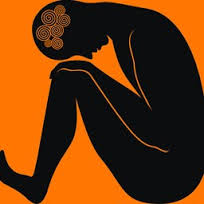The Emotionally Sensitive Person (ESP)
An Emotionally Sensitive Person is one who experiences more intense emotions than most other people do. When someone is emotionally sensitive, they often hear statements like “Stop overreacting,” or “You’re so dramatic.” Many are labeled as being “too sensitive” because their emotional reactions are quicker, last longer, and are stronger than other people expect.
The Emotionally Sensitive Person
By Karyn Hall, PhD
An Emotionally Sensitive Person is one who experiences more intense emotions than most other people do. When someone is emotionally sensitive, they often hear statements like “Stop overreacting,” or “You’re so dramatic.” Many are labeled as being “too sensitive” because their emotional reactions are quicker, last longer, and are stronger than other people expect.
Life is so complicated that we typically try to simplify it, often by putting people and events into black and white categories. But like much of what we tend to simplify in that way, being an emotionally sensitive person is not a you-are or you-are-not kind of descriptor.
Despite the emphasis our culture has on logic and self-control, the emotional part of everyone’s brain is pretty powerful, particularly given the right circumstances. Jonathan Haidt, in The Happiness Hypothesis, talks about the brain being like an elephant with a rider. Picture a huge six-ton elephant, with a rider on top. This represents the two basic systems in our brains.
Haidt says the rider is the logical, rational part of the brain that is reflective, it’s the part of you that deliberates and analyzes and plans for the future. The elephant represents the emotional system, the one that is instinctive, that feels pleasure and pain and wants gratification right now. But the rider is so small relative to the elephant, anytime the six-ton elephant and the rider disagree about which direction to go, the rider is going to lose. And that happens more than you might realize.
Anyone who has eaten a bag of potato chips when they said they would only have twelve, or who has compulsively called an ex when they vowed they wouldn’t, or who has said angry words they later wished they hadn’t, understands the power of emotion. And that’s just for everyday issues, not for the really big, this-matters-to-the-core kind of situations. For people who are emotionally sensitive, the elephant (the emotional part of the brain) is even more skittish and more difficult to manage.
Some individuals may have a focused sensitivity. This means they are noticeably more emotional than most people about a certain issue, like their weight or their children, or that they may be emotionally sensitive at certain times. Some may have always been emotionally sensitive and some may have experienced events that have led to or added to their sensitivity.
For others, their sensitivity is more general and varies along a continuum. At one end of the continuum are the individuals who are slightly more sensitive than the majority of people and at the other end of the continuum are those who are so emotionally sensitive it is difficult for them to function.
Because of the pain they feel and our culture’s tendency to value logic, some emotionally sensitive people may wish they didn’t experience emotions at all. Wouldn’t life be easier without sadness and fear? But emotions provide important information and skills such as signaling when to get out of dangerous situations (fear), the ability to be in relationships (love) and a capacity to appreciate positive experiences (joy). The emotional part of the brain provides motivation and commitment and is just as necessary for living as logic.
Being emotionally sensitive has its challenges and for some those challenges require professional help. Some people suffer deep pain on a daily basis because of their emotional sensitivity. At the same time, those who are emotionally sensitive often have a deeper capacity for caring about others, can be artistic and creative, and are often the people who bring about change through their passion for causes. Learning to manage your emotions so that the pain is lessened and there is room for joy can help you use the energy from your emotions effectively, make balanced decisions and be more effective in problem solving.


